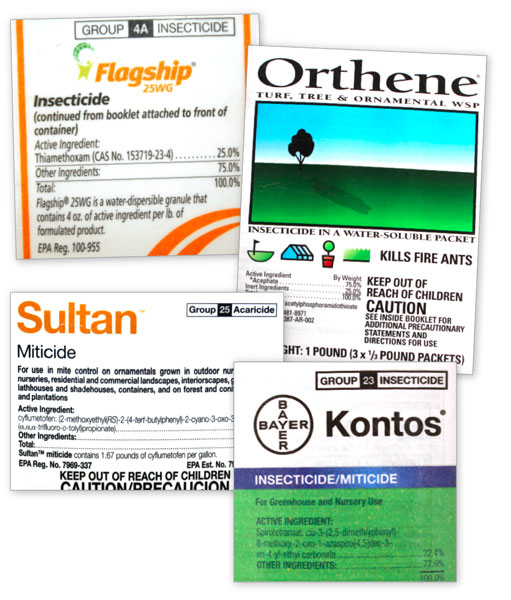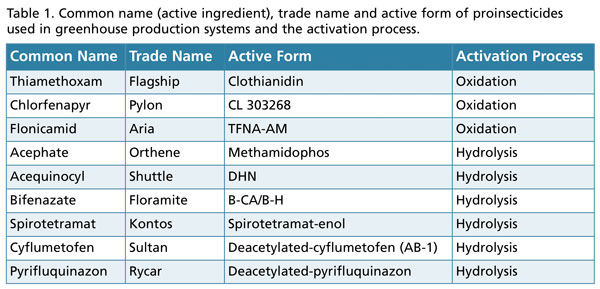1/1/2023
What Are Proinsecticides?
Raymond A. Cloyd

Pesticides—in this case, insecticides and miticides—are commonly used in greenhouse production systems to manage insect and mite pest populations below plant damaging levels. However, a number of pesticides aren’t active on the target insect or mite pest unless they’re activated by metabolic enzymes or converted into active forms.
These pesticides are called proinsecticides. A proinsecticide is a compound that’s inactive in the original form, but is converted into an active form by a plant or target insect or mite pest. Proinsecticides are metabolically activated or converted into active forms by two processes: oxidation by the enzyme cytochrome P450 or hydrolysis by enzymes such as esterases or amidases.
Pictured: Examples of pesticide products that are considered proinsecticides.
Proinsecticides may not reduce insect or mite pest populations immediately because the time required to activate a proinsecticide may result in a delay in killing insect or mite pests. (Table 1 lists the proinsecticides used in greenhouse production systems.)
Some insecticides can be converted from a compound with minimal systemic activity into a compound that has a high level of systemic activity. For example, spirotetramat is converted into spirotetramat-enol, which is more systemically active, moving both upward (in the xylem or water-conducting tissues) and downward (in the phloem or food-
conducting tissues) in the plant.
So, in conclusion, greenhouse producers should be aware of those pesticides that are proinsecticides to better understand their activity on insect and mite pests. GT

Raymond A. Cloyd is a Professor and Extension Specialist in Horticultural Entomology/Plant Protection at Kansas State University in Manhattan, Kansas. He can be reached at (785) 532-4750 or rcloyd@ksu.edu.